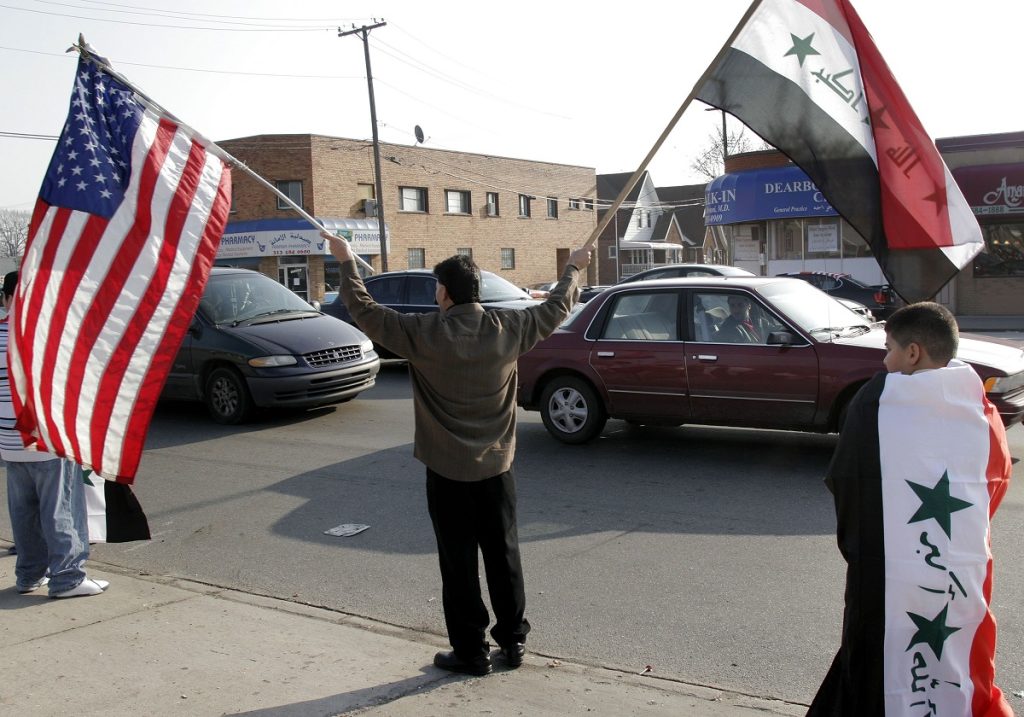The Iraqi American community is one of the most historically rich and resilient immigrant groups in the United States. Fleeing war, political oppression, or seeking better economic opportunities, Iraqis have gradually established a vibrant presence across America over the past several decades. Today, they are an essential part of the American mosaic—economically, culturally, and politically.
1. Population and Distribution
As of the latest estimates (2023), there are over 230,000 Iraqi Americans living in the United States. This number includes both first-generation immigrants and U.S.-born Iraqis. The majority of Iraqi Americans arrived in several waves, including:
-
Post-1991 Gulf War
-
After the 2003 U.S. invasion of Iraq
-
Ongoing migration due to instability, particularly among minorities like Assyrians, Yazidis, and Kurds
Top cities and states with significant Iraqi populations:
-
Detroit & Sterling Heights, Michigan – Especially in Macomb and Wayne counties, home to the largest Iraqi population in the U.S., including a large Chaldean Christian community.
-
Chicago, Illinois – Home to a diverse Iraqi population, including Kurds and Arabs.
-
Phoenix, Arizona
-
San Diego and Los Angeles, California
-
Houston and Dallas, Texas
Dearborn and Sterling Heights, Michigan, have become symbolic hubs for Iraqi Americans, with Arabic-language stores, churches, mosques, media, and schools serving their needs.
2. Professional and Economic Contributions
Iraqi Americans are involved in a wide range of professions, from small business ownership to high-skilled careers. Here are key sectors where they thrive:
Small Business Owners:
Many Iraqi Americans own:
-
Grocery stores
-
Gas stations
-
Restaurants (particularly Middle Eastern and Mediterranean cuisine)
-
Jewelry shops
-
Auto repair and sales businesses
Healthcare and Education:
A significant number of Iraqis are:
-
Doctors, pharmacists, and nurses (especially among those who arrived with medical degrees)
-
University professors and researchers
-
Social workers and educators aiding refugees and immigrant communities
Technology and Engineering:
Younger Iraqi Americans, especially second-generation, are increasingly entering:
-
Software development
-
Cybersecurity
-
Civil and mechanical engineering
Public Service and Politics:
Iraqi Americans are also active in local government, nonprofit work, and interfaith dialogue. Some have run for office or serve on school boards, especially in Michigan and California.
3. Religion and Community Institutions
The Iraqi American population is religiously diverse:
-
Chaldean Catholics make up the largest subgroup, with churches and schools supporting their faith and heritage.
-
Sunni and Shia Muslims have also established mosques, Islamic centers, and halal businesses.
-
Smaller communities of Yazidis and Mandaeans exist, particularly in places like El Cajon, California.
These communities have built cultural associations, media outlets, and charities to maintain their heritage while integrating into American society.
4. Challenges and Resilience
Like many immigrant groups, Iraqi Americans face challenges:
-
Discrimination, particularly post-9/11
-
Cultural adaptation and generational divides
-
Economic struggles among recent refugees
However, the community has demonstrated remarkable resilience, building robust support systems and gaining political recognition.
The Iraqi American community stands as a testament to endurance, cultural richness, and success against the odds. With strong roots in cities like Detroit and Chicago, and growing visibility in fields like healthcare and entrepreneurship, Iraqi Americans are shaping a future that honors both their heritage and their adopted homeland.

